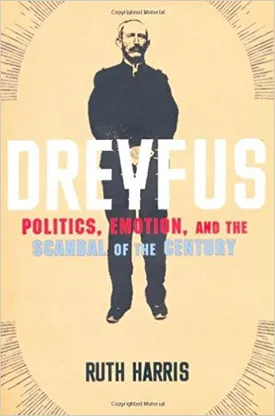Dreyfus: Politics, Emotion, and the Scandal of the Century by Ruth Harris
Dreyfus: Politics, Emotion, and the Scandal of the Century is a book written by Ruth Harris which follows the infamous trial of Jewish-French army officer Alfred Dreyfus. Dreyfus, who was accused of treason in 1894, set off one of the most sensational political and social disputes of the 19th century. He was ultimately convicted in a court-martial, found guilty of espionage, and sentenced to life imprisonment at Devil's Island.
In her book, Ruth Harris seeks to explore and understand the many aspects of the Dreyfus affair which is “the most celebrated that ever shattered French society”. The book includes biographical details of Dreyfus and the other people involved in the case as well as a discussion of the wider implications of what happened. It also looks at the anti-Semitic nature of the case and the way in which anti-Semitism was used as an entrenched tool for France in the late nineteenth century.
The book begins by summarizing the historical background and leads into a discussion of the various events which culminated in the arrest and trial of Alfred Dreyfus. Harris examines the reasons why the case generated such immense emotion and interest, looking at the social and political context of Paris at the time. The book also captures the intense feelings of outrage, passion and division which the affair provoked.
The main thrust of Harris’s analysis is that the case was able to ignite such a powerful response amongst individuals and various factions because of its intertwined nature of politics, social unrest and anti-Semitic sentiment. The battle which resulted encapsulated the divisions which existed in French society at the time, as Harris has suggested that this was “a contest for the soul of the Republic itself”.
Filtering through the myriad of arguments and counter-arguments presented during the course of this trial, Harris sets out to demonstrate how the Dreyfus affair had the potential to turn political allegiances and emotional reactions which already existed in the public against one another. Special attention is paid to the prominent role which the press had in presenting their own interpretation of events and the powerful emotional impact it had on the general population.
Ruth Harris manages to successfully weave together her many years of research and analysis to paint a vivid albeit horrifying image of the fervour generated by this case and how it has shaped modern perceptions of French history. By looking beyond the events to the power struggles between the various individuals and groups involved, she reveals the complexity of this affair, and she presents an engaging analysis of a political scandal which shook France to its core.

